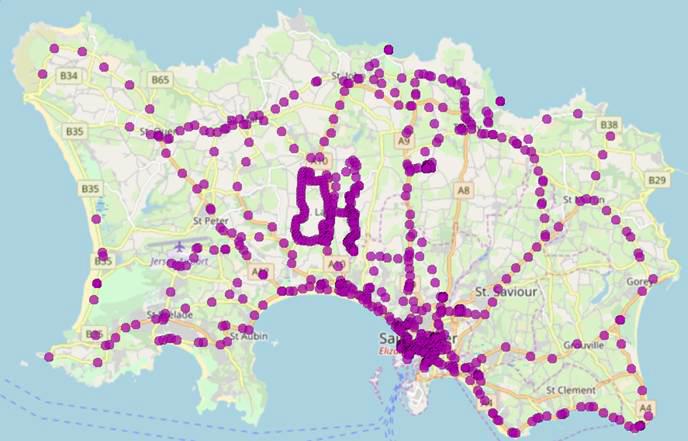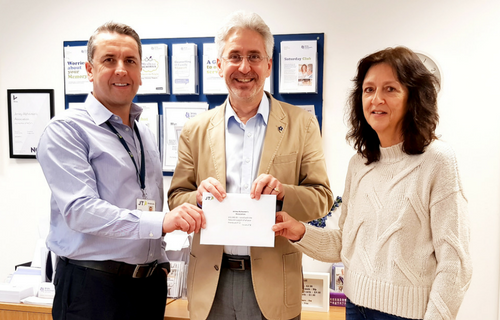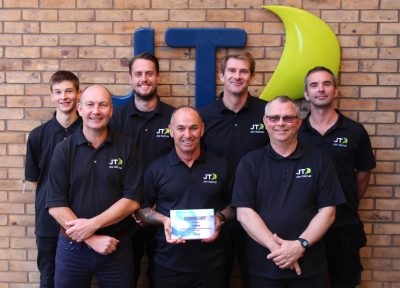JT has worked with Sony Semiconductor Solutions Corporation and Sony Europe Limited to create the Island’s second ‘LPWA’ network – a Low-Power, Wide-Area Network that allows devices to connect to the internet and complements JT’s 3G/4G cellular connectivity.
JT is investing in new networks, in collaboration with Digital Jersey, to expand its ‘Internet of Things’ (‘IoT’) offering – which lets everyday devices collect and share data automatically.
Sony saw the benefit of testing its LPWA technology in Jersey because of the Island’s super-fast fibre network, its varied terrain and the population’s digital connectivity.
To demonstrate the potential of the radio technology, JT deployed just two receivers in the central and southern region of the Island. Extensive drive and walk tests were undertaken by Sony Europe’s engineers to confirm the extent of the coverage offered (see below) and hence the potential low cost of operating a network using this innovative technology.
Tom Noel, Managing Director of JT International, said: “Jersey is the perfect location to run new networks and companies interested in IoT technology can use Jersey as a testbed for
their own products and services. The LPWA technology is relatively new but its potential to interact with IoT technology is vast and will eventually change the way we live, work and do business. Sony’s LPWA technology performed better than expected so JT is primed to provide its customers with the best access to IoT technologies and full connectivity.
“Thanks to a collaboration with Digital Jersey, Jersey will also soon be home to a dedicated IoT Lab, based at one of JT’s exchanges, which will offer companies the opportunity to collaborate on innovative product development, share resources and turn ideas into commercial ventures. JT continues to invest internationally, bringing technology and partnerships back to the Channel Islands to benefit the local smart economy.”
Sony’s LPWA technology is designed for devices that are required to send relatively small amounts of data over long periods of time using low levels of power. Potential examples include:
– Collecting data from sensors monitoring water metering, heat regulation or congestion, which would help Jersey businesses conduct operations more efficiently and cost effectively while gaining greater insight into trends and behaviour.
– Sensors recording temperature, air quality and humidity could give asthma sufferers greater knowledge of their environment, allowing them to better prepare for the day in order to manage their symptoms.
Steve Beck, GM of Telecoms R&D at Sony Europe Limited, said: “JT’s assistance during the trial was excellent and we really appreciated their support. While it wasn’t possible to drive down every road in the time available, we covered a large number of routes and were pleased to confirm such wide coverage using just two receivers.”
JT is already a global leader in the Internet of Things with over 1.4 million JT SIM cards connecting devices worldwide, from heart monitors in Canada to payment systems in West Africa.
Find out more about JT IoT here.




